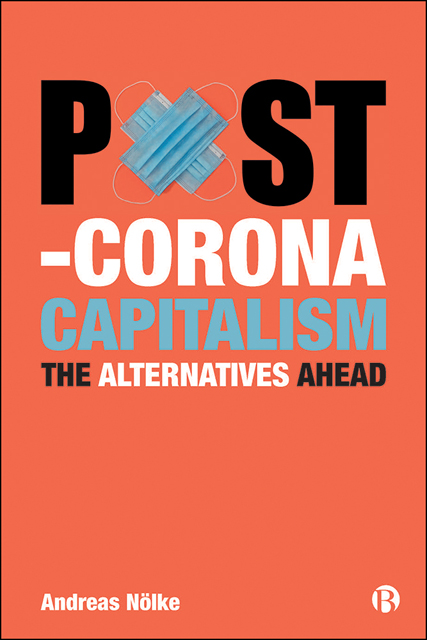Book contents
- Frontmatter
- Dedication
- Contents
- List of Abbreviations
- Acknowledgements
- Preface
- 1 Introduction: Confronting a Multidimensional Crisis of Capitalism
- Part I Capitalism and Society
- Part II Domestic Institutions of Capitalism on the Demand Side
- Part III Domestic Institutions of Capitalism on the Supply Side
- Part IV The International Institutions of Capitalism
- Part V Anthropocene Capitalism
- Part VI Geo-economic Shifts in Global Capitalism
- Part VII Ideologies in Contemporary Capitalism
- References
- Index
14 - Industrial Relations and Training: Strengthening or Weakening of Unions?
Published online by Cambridge University Press: 13 October 2022
- Frontmatter
- Dedication
- Contents
- List of Abbreviations
- Acknowledgements
- Preface
- 1 Introduction: Confronting a Multidimensional Crisis of Capitalism
- Part I Capitalism and Society
- Part II Domestic Institutions of Capitalism on the Demand Side
- Part III Domestic Institutions of Capitalism on the Supply Side
- Part IV The International Institutions of Capitalism
- Part V Anthropocene Capitalism
- Part VI Geo-economic Shifts in Global Capitalism
- Part VII Ideologies in Contemporary Capitalism
- References
- Index
Summary
The coronavirus health crisis has highlighted the importance of many forms of low-paid labour for our societies. At the same time, many people have acknowledged the miserable working conditions of these people; for example, Amazon warehouse and delivery workers and workers in the meat industry, but also of bus drivers and retail assistants. It has also led to quite substantial changes in the relations between employers and employees. How will the crisis affect the relationship between the latter in the long run? For example, will the more widespread practice of working from home during the health crisis lead to a weakening of labour unions? Or will the latter be strengthened because gig workers have realized their vulnerability during the crisis and become organized in trade unions? And how will the education and training systems of young people be affected by the crisis – will the role of unions in the latter be marginalized or strengthened?
Industrial relations and training systems in Comparative Capitalism
In order to develop a more precise idea of how these questions can be answered, it is again useful to turn to concepts of Comparative Capitalism and their treatment of industrial relations and training systems (Menz, 2017: 100–45; Nölke et al, 2020: 187–90; Vermeiren, 2021: 90–117).) Industrial relation systems and the related systems of Vocational Education and Training (VET) are a core topic of Comparative Capitalism approaches and their distinctions between Coordinated and Liberal Market Economies in the Northern economies and between the Hierarchical and State-permeated Economies in the South as well as the Dependent Economies in Eastern Europe. Industrial relations and VET are closely connected: both depend on the power balance between employers and unions; both are crucial for incomes and career trajectories for large parts of the population (Menz, 2017: 100). More specifically, the combination of industrial relations and training systems is assumed to be crucial for the attainment of crucial institutional advantages in different types of capitalism. For example, sectorwide wage-setting and vocational training not only enables the development of crucial skills for incremental innovations in CMEs, but also helps to avoid the problem of poaching where companies hire workers trained by competing companies (Vermeiren, 2021: 101–5).
- Type
- Chapter
- Information
- Post-Corona CapitalismThe Alternatives Ahead, pp. 91 - 96Publisher: Bristol University PressPrint publication year: 2022



